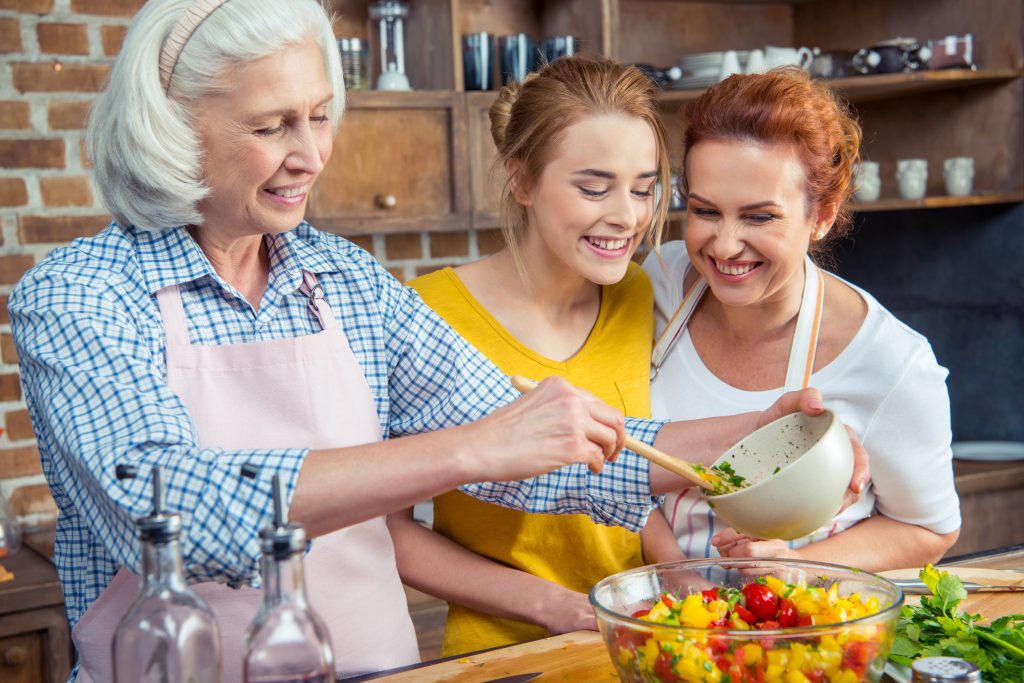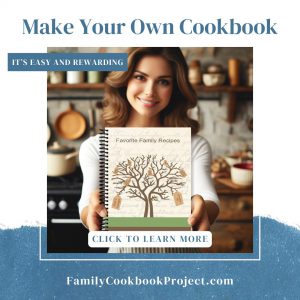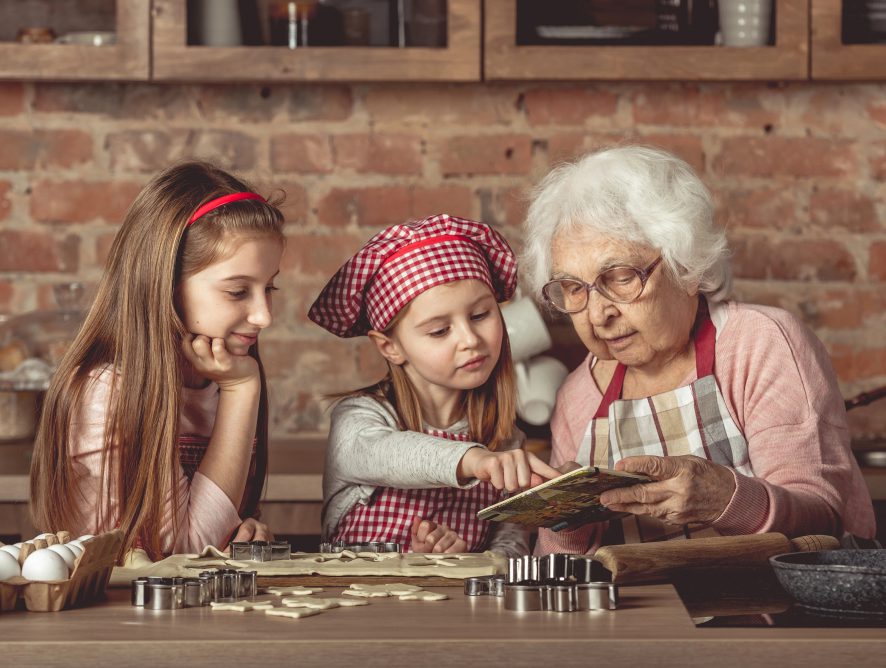 In every family, grandmothers hold a special place, often being the keepers of family traditions, stories, and, most importantly, recipes. These recipes are more than just instructions for making food; they are a legacy, a bridge between generations, and a treasure trove of memories. As the matriarch of the family, a grandmother’s role in preserving and passing down these culinary traditions is invaluable. One of the most meaningful ways to ensure these treasured recipes are not lost to time is by creating a family cookbook.
In every family, grandmothers hold a special place, often being the keepers of family traditions, stories, and, most importantly, recipes. These recipes are more than just instructions for making food; they are a legacy, a bridge between generations, and a treasure trove of memories. As the matriarch of the family, a grandmother’s role in preserving and passing down these culinary traditions is invaluable. One of the most meaningful ways to ensure these treasured recipes are not lost to time is by creating a family cookbook.
The Importance of Preserving Family Recipes
Family recipes carry with them the essence of our heritage. They are the flavors of our childhood, the dishes that have graced our family tables during holidays and special occasions, and the comfort foods that have provided solace during difficult times. These recipes are imbued with history and love, making them an integral part of our family identity.
- Cultural Heritage: Many family recipes are rooted in cultural traditions and reflect the culinary practices of our ancestors. Preserving these recipes helps maintain a connection to our cultural heritage and ensures that these traditions are carried forward.
- Family Memories: Each recipe often comes with its own set of memories. Whether it’s the special cake baked for birthdays, the secret family sauce, or the holiday cookies made every year, these recipes evoke fond memories and stories that are passed down alongside the ingredients and instructions.
- Personal Legacy: For grandmothers, passing down recipes is a way to leave a personal legacy. It is a way to ensure that a part of them continues to be present in the lives of their descendants. The act of cooking from a grandmother’s recipe can be a comforting and cherished ritual for future generations.
The Risk of Losing Valuable Knowledge
In today’s fast-paced world, the oral tradition of passing down recipes can easily be lost. If these recipes are not written down and documented, they risk being forgotten as older generations pass away. This loss is not just about losing a recipe; it’s about losing a piece of the family’s history and identity.
- Oral Tradition: While sharing recipes verbally has been a tradition for centuries, it comes with the risk of inaccuracies and eventual loss. Details may be forgotten, and without a written record, the nuances of a recipe can disappear.
- Generational Gap: Younger generations may not always have the opportunity to spend time in the kitchen with their grandmothers, learning these recipes firsthand. A written family cookbook bridges this gap, providing a way for them to connect with their heritage even if they are not able to experience it directly.
 Creating a Family Cookbook: A Gift for Future Generations
Creating a Family Cookbook: A Gift for Future Generations
A family cookbook is a beautiful and practical way to preserve and share your treasured recipes. It serves as a permanent record that can be passed down, ensuring that the culinary traditions and memories are kept alive for future generations. Here are some compelling reasons why grandmothers should consider creating a family cookbook:
- Preserving Tradition: Writing down your recipes ensures that the traditions are preserved accurately. It provides a reliable source that family members can refer to, keeping the recipes and the associated traditions alive.
- Personal Notes and Stories: Including personal notes and stories in the cookbook adds depth and meaning. Explain why a recipe is important, share anecdotes about when it was made, and include any special tips or variations. These personal touches make the cookbook more than just a collection of recipes; it becomes a family heirloom.
- Connecting Generations: A family cookbook helps bridge the generational gap. It allows younger family members to connect with their heritage and learn about their ancestors in a tangible and meaningful way. Cooking from the same recipes creates a sense of continuity and belonging.
- Legacy of Love: Creating a family cookbook is an act of love. It is a way for grandmothers to give a part of themselves to their descendants. The cookbook becomes a legacy that represents the love, care, and culinary wisdom that has been nurtured over the years.
- Ensuring Accessibility: With modern technology, creating and sharing a family cookbook has never been easier. Websites like FamilyCookbookProject.com offer tools to help you compile, design, and print your cookbook, making it accessible to all family members regardless of where they live.
Steps to Create a Family Cookbook
Creating a family cookbook may seem like a daunting task, but it can be a rewarding and enjoyable project. Here’s how you can get started:
- Gather Recipes: Begin by collecting all your treasured recipes. Include a variety of dishes, from everyday meals to special occasion treats. Don’t forget to include any handwritten recipe cards and notes.
- Document and Organize: Write down the recipes, making sure to include detailed instructions, measurements, and any personal tips. Organize them into categories such as appetizers, main courses, desserts, and so on.
- Add Personal Touches: Include personal notes, stories, and photos. Share why certain recipes are special, any family traditions associated with them, and any memories that come to mind.
- Design and Compile: Use a platform like FamilyCookbookProject.com to design and compile your cookbook. Choose templates, layouts, and cover designs that reflect your family’s style.
- Print and Share: Once your cookbook is complete, have it printed and bound. Share copies with family members so that everyone can enjoy and cherish the recipes and stories. A family cookbook makes a wonderful gift that will be long remembered.
Passing down treasured family recipes through a family cookbook is a meaningful way for grandmothers to preserve their culinary heritage and ensure that it is cherished by future generations. It is a gift of love, history, and tradition that connects the past with the present and the future.
By documenting these recipes and the stories behind them, grandmothers can create a lasting legacy that will be remembered and appreciated for years to come. Start your family cookbook project today and give your family the priceless gift of culinary heritage and cherished memories.
Bill Rice is Founder and Co-Publisher of the Family Cookbook Project, a website that helps families and individuals collect, preserve and share food memories by creating their own printed personal cookbooks. He is the author of The Wellfleet Oyster Cookbook and the Cape Cod Cocktail Cookbook (Available on Amazon), both created using FamilyCookbookProject.com. He is also editor of the Donovan Family Cookbook, now it’s third printing.
Follow Family Cookbook Project on Facebook, Instagram, Twitter and Pinterest

